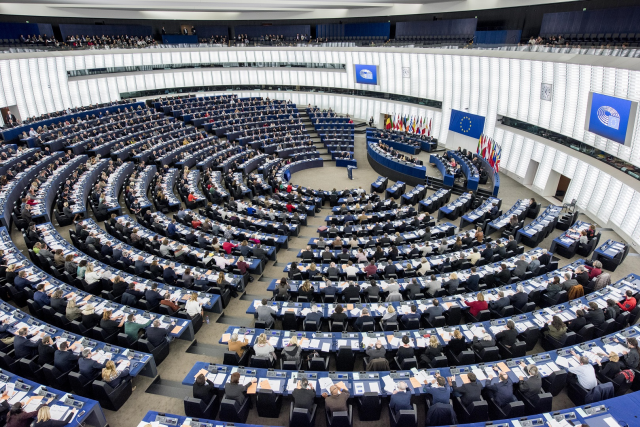The European Parliament warns the Republic of Moldova
Brussels is increasingly concerned about democratic setbacks in the Republic of Moldova

Bogdan Matei, 10.10.2018, 12:45
The Republic of Moldova was once the proud beneficiary of the Eastern Partnership, a program under which the European Union is trying to propagate democracy and prosperity in the former Soviet area, which also includes Georgia, Ukraine, Armenia, Azerbaijan and Belarus. Alongside Tbilisi and Kiev, Chisinau signed association and free trade agreements with Brussels 4 years ago, taking a huge step forward on its European path.
In time, however, the evaluation of community bodies has become stricter. The European Parliament’s Committee on Foreign Affairs on Tuesday endorsed the draft report on the implementation of the Association Agreement with the Republic of Moldova, and the document raises concerns about the deterioration of democratic values observance. Just like the Venice Commission experts have also warned, the adoption of the mixed voting system in the parliamentary elections to be held next year, when half of the deputies are running on lists and the others are elected by uninominal vote, benefits mostly big parties- the west-leaning Democratic Party, in power, and the Socialist Party of the pro-Russian president Igor Dodon.
A deviation from the classical standards of democracy is also the cancelation of the June mayoral elections in the capital city, Chisinau. The winner, former civic activist and one of the current leaders of the pro-European opposition, Andrei Năstase, was found guilty of violating the Electoral Code, for having urged Moldovan citizens to go the polls on the voting day. The Moldovan PM himself, Pavel Filip, admitted back then that the court ruling “raises many question marks” and that “various speculations which are not favouring the current government are being circulated”. From neighbouring Romania, which has always supported Moldova’s European aspirations, foreign minister Teodor Meleşcanu, has warned that the measure might affect the republic’s stability.
In their turn, the European ambassadors have said the decision to annul the elections and the way it was made deprives the inhabitants of Chisinau of their democratically elected mayor. The European Commission has also announced that until political conditions related to democracy, the rule of law and human rights are met, the payment of the first instalment of the macro-financial assistance granted to Moldova, amounting to 100 million Euros, will be suspended.
The report drafted by the European Parliament’s Committee on Foreign Affairs also denounces pressure exerted on the opposition leaders, the judiciary’s lack of independence and the power’s monopoly over the mass media. Radio Romania correspondents quote analyst Ion Tăbîrţă as saying that Chisinau’s relations with Brussels are souring. The analyst also warns that apart from suspending the disbursement of macro-assistance, the EU might also reintroduce visas for the citizens of the Republic of Moldova who travel to the EU.






























